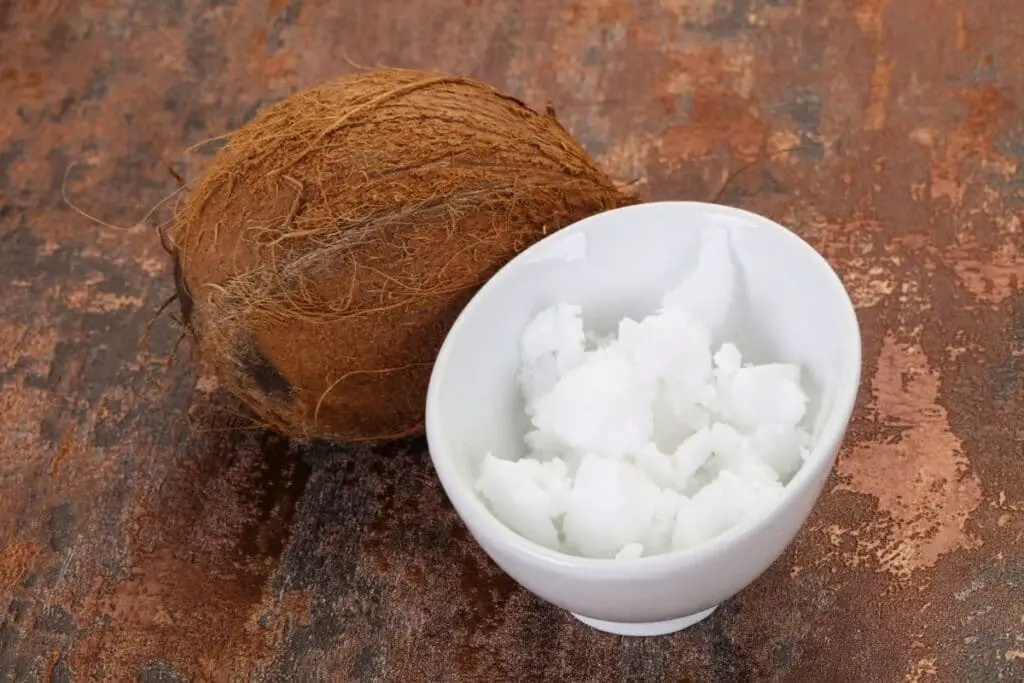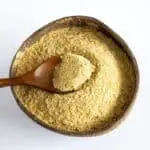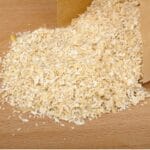Quick summary: Yes, coconut oil can go bad over time, even though it has a relatively long shelf life. Signs of spoilage include a rancid smell, mold growth, off taste, and unusual color.
How much can coconut oil last? Does the heat bother it? What if it has completely dissolved? Does that mean it is spoiled? We bring answers to all the questions you have ever had about this oil.
Nutritionists around the world advise the use of coconut oil in cooking. It has also become somewhat fashionable to replace standard types with it. Its nutritional properties, as well as the high heat resistance, make it a healthier choice for food preparation. It is not surprising, therefore, that it can be found in more and more households.
The good thing is that coconut oil has a remarkably long shelf life. However, some influences can impair its stability and quality. Therefore, we bring you the most valuable tips on storing coconut oil and recognizing if it is spoiled.
How Long Does Coconut Oil Last?
It is believed that coconut has the most extended shelf life among all the types of oil you can choose for cooking. It is good to know that it will not spoil quickly and that you are sure of its correctness for a long time. However, here too, there are some differences depending on the type of production. Just like other oils, here we also have two types, refined and virgin.
Refined coconut oil
There is a period between 18 months and two years, as claimed by various sources about the duration of refined coconut oil. It also depends on the manufacturer and his production technique, but you can roughly count on the product to be good between that period. More than two years is not realistic to endure.
Virgin coconut oil
Unrefined or virgin coconut oil, as they call it, will last a little longer. Sources say about three years and some even longer, again depending on the manufacturer. Certain brands claim a shelf life of five years for their unrefined coconut oil. Generally follow the manufacturer’s written recommendations.
Can Coconut Oil Go Bad?
Despite its exceptional durability over time, coconut oil can certainly spoil as well. We bring you the most common signs by which you will diagnose that the product is no longer suitable for consumption.
Here’s how to tell if coconut oil is bad:
Sign 1: It has rancid smell
Keep in mind that the extra virgin coconut oil has a slightly stronger coconut scent than the refined oil. But for both, the rule applies if you notice that the smell is unusual, sour, or even a little rancid; it is a sure sign that the product must go in the trash. Rancid coconut oil is by no means tasty or healthy.
Sign 2: Mold appeared
Although it is not the most desirable destination for mold, it can still occur if the product has been exposed to it in some form. So if you notice any organic formations or black spots in the oil, discard the product immediately.
Sign 3: It has rancid taste
When all other senses fail, the taste will surely show if the product is good. You know how normally your fresh coconut oil tastes. Anything other than that is not good, especially if the taste is rancid.
Sign 4: Color is yellow
Another indicator of spoiled coconut oil can be color. Under normal circumstances, the oil is either transparent if it is liquid or has a delicate creamy white color. If a yellow color appears on the parts, it is undoubtedly a bad coconut oil.
If your oil is no longer usable, you might want to try these substitutes for coconut oil.
Which is the Best Way to Store Coconut Oil?
With this type of cooking oils, it is especially important to properly store coconut oil. In this way, you can significantly contribute to preserving the quality and excellent taste. Here are some tips you won’t go wrong with.
Tip 1: Keep it at a stable temperature
It is unnecessary to keep coconut oil in the refrigerator, but you can do so if you wish. Depending on what texture you like, you can keep it in the fridge, pantry, or on the kitchen counter at room temperature. We only suggest that you do not change the temperature conditions often. Avoid direct sunlight.
Tip 2: Keep it sealed in a glass container
In most cases, the packaging in which you bought the oil is quite acceptable for long-term storage. It is not necessary to overflow it after opening. What is needed is to make sure to close the jar well each time after use, as with other cooking oils.
Tip 3: Be careful not to contaminate the oil
Since your coconut oil will be in use for a long time, it is very important to avoid contaminating it with other ingredients or dirt. Always use a clean spoon when grabbing out the product from the jar.
FAQs
Is it safe to use expired coconut oil?
Yes, It is safe to use expired coconut oil if stored properly. The product will, in most cases, be suitable for a long time after the expiration date on the label. If the coconut oil tastes sour, you should discard it.
Can expired coconut oil make you sick?
Yes, consuming expired coconut oil can potentially make you sick as it may become rancid and develop harmful compounds that could cause digestive discomfort or other adverse reactions.
How can you tell if coconut oil has gone bad?
You can tell if coconut oil has gone bad by its off smell, a rancid or sour odor, and a change in texture from smooth to clumpy or gritty, indicating it’s no longer suitable for consumption.
Should you keep coconut oil in the fridge?
Storing coconut oil in the fridge is not necessary but can help prolong its shelf life, especially in warmer climates. It becomes solid at lower temperatures, which can slow down oxidation and maintain its quality.
Can coconut oil last 10 years?
No, coconut oil is unlikely to remain in good quality and safe for consumption after 10 years. Coconut oil can have a shelf life of up to 2-4 years when stored properly in a cool, dark place.
Conclusion
If you have not yet become an enthusiast of coconut oil, we advise you to find out about its benefits and perhaps introduce it into your routine. It has excellent durability properties, and many agree that it is a healthier choice compared to classic edible oil. In any case, it tolerates high temperatures well, so it is suitable for frying food.
It has a better shelf life than ordinary oils and should last on the shelf for at least two years. If you have virgin oil, then longer. Do not expose it to the sun and direct heat and have a stable environment either at room temperature or in a cooler place. Keep it in a glass jar, and always use a clean extraction spoon.
Up next:
- Can coconut milk be frozen?
- How to tell if coconut milk is bad?
- Does olive oil go bad?
- How long does vegetable oil last?
- How long does coconut water last?
*image by AndreySt/depositphotos









